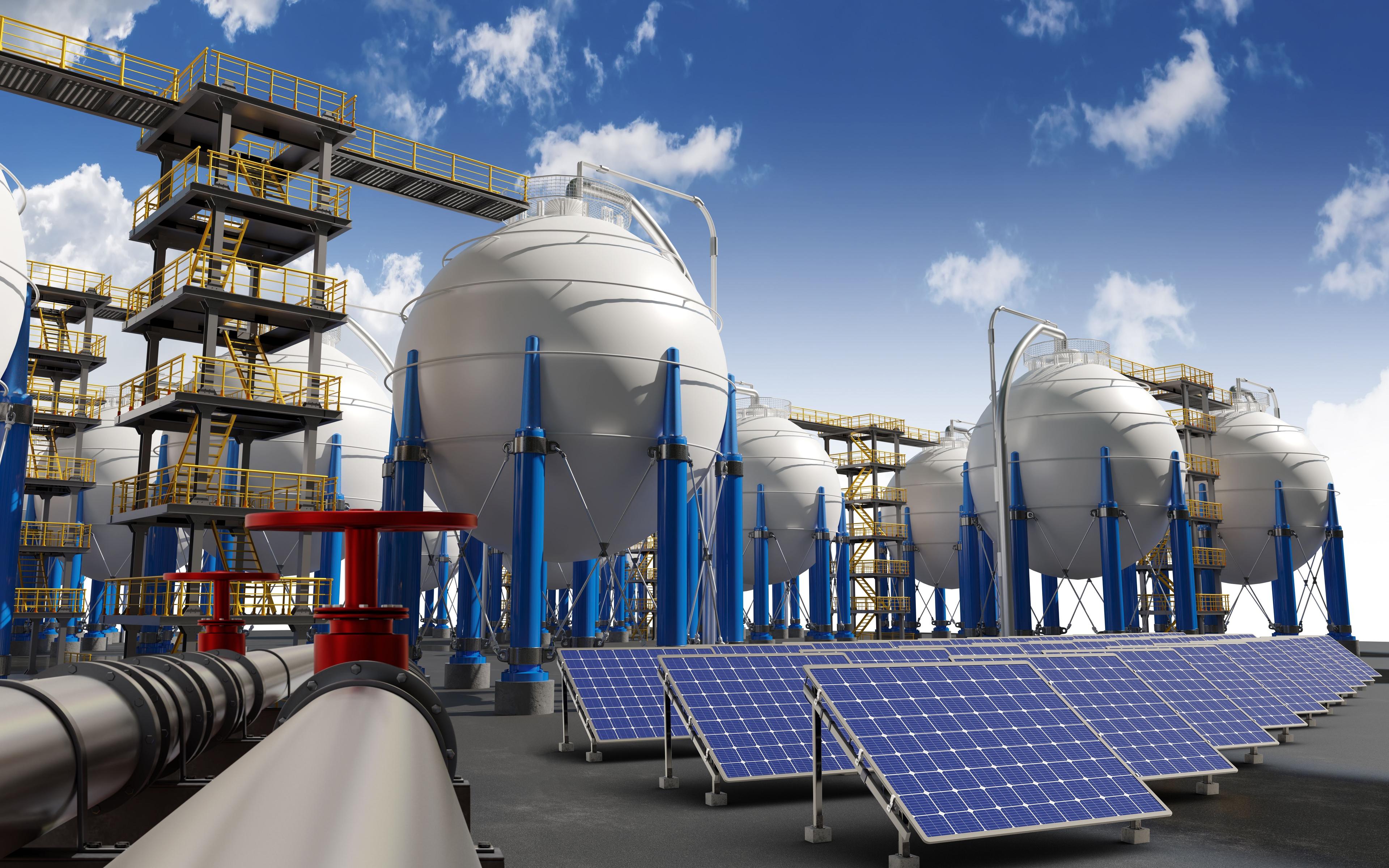Energy Sector Authorities in Saudi Arabia
Saudi Arabia’s energy sector is transforming from a reliance on fossil fuels to a more sustainable and diversified energy future. This shift, driven by Vision 2030, is opening the market to not just oil and gas giants but also green energy companies, clean tech providers, and global players in sustainable energy.
Key projects like the NEOM Green Hydrogen Plant, one of the world’s largest hydrogen initiatives, and investments in Lucid Motors for electric vehicle production highlight the Kingdom’s move toward cleaner energy. This transformation is unlocking new opportunities for companies specializing in renewable energy, green technologies, and sustainable solutions to enter and thrive in Saudi Arabia's evolving energy market.
Understanding the key authorities, stakeholders, and regulatory framework is crucial for businesses seeking to operate successfully within this evolving landscape.
Key Authorities in Saudi Arabia’s Energy Sector
1. Ministry of Energy
The Ministry of Energy is the principal authority responsible for the development and implementation of policies related to petroleum, gas, and renewable energy in Saudi Arabia.
Responsibilities:
- Formulating and executing energy policies, including oil, gas, and renewables.
- Overseeing exploration, production, and distribution of energy resources.
- Promoting energy efficiency and sustainability initiatives.
Significance:
The Ministry plays a pivotal role in steering the Kingdom's energy strategy, aligning with Vision 2030 objectives to diversify the energy mix and enhance sustainability.
2. Saudi Electricity Regulatory Authority (SERA)
Established to regulate the electricity and water desalination sectors, SERA ensures the reliability and efficiency of electricity services in Saudi Arabia.
Responsibilities:
- Regulating electricity tariffs and ensuring fair pricing.
- Monitoring service quality and consumer protection.
- Promoting energy conservation and efficiency measures.
Significance:
SERA ensures that the electricity sector operates efficiently, reliably, and sustainably, which is crucial for economic growth and consumer satisfaction.
3. King Abdullah City for Atomic and Renewable Energy (KACARE)
KACARE is tasked with developing and implementing nuclear and renewable energy programs to diversify the Kingdom's energy sources.
Responsibilities:
- Researching and developing atomic and renewable energy technologies.
- Establishing regulations and standards for nuclear and renewable energy projects.
- Collaborating with international organizations on energy initiatives.
Significance:
KACARE plays a critical role in advancing Saudi Arabia's transition to a diversified and sustainable energy portfolio.
Learn more at: King Abdullah City for Atomic and Renewable Energy
4. Saudi Aramco
Saudi Aramco is the state-owned oil company and a global leader in energy production, managing the majority of the Kingdom's oil and gas operations.
Responsibilities:
- Exploration, production, refining, and marketing of oil and gas.
- Investing in petrochemical industries and energy-related technologies.
- Expanding into renewable energy projects and initiatives.
Significance:
As a central player in the global energy market, Saudi Aramco significantly contributes to the Kingdom's economy and energy sector development.
Key Stakeholders in the Energy Sector
1. Public Investment Fund (PIF)
The Public Investment Fund is Saudi Arabia's sovereign wealth fund, investing in various sectors, including energy, to support economic diversification.
Role:
- Investing in renewable energy projects and companies.
- Funding infrastructure development for energy initiatives.
- Partnering with international firms to advance energy technologies.
Significance:
PIF's investments are central to the Kingdom's strategy to diversify its energy mix and promote sustainable development.
2. Saudi Electricity Company (SEC)
The Saudi Electricity Company is the primary entity responsible for electricity generation, transmission, and distribution in the Kingdom.
Role:
- Operating power plants and managing the national grid.
- Implementing renewable energy projects to diversify energy sources.
- Enhancing energy efficiency and reducing transmission losses.
Significance:
SEC is pivotal in ensuring a stable and reliable electricity supply, supporting industrial growth and quality of life.
3. Renewable Energy Project Development Office (REPDO)
REPDO oversees the procurement and development of renewable energy projects under the National Renewable Energy Program.
Role:
- Issuing tenders for solar and wind energy projects.
- Facilitating private sector participation in renewable energy development.
- Monitoring project implementation to ensure alignment with national goals.
Significance:
REPDO drives the expansion of renewable energy capacity, contributing to the Kingdom's sustainability targets.
Regulations in Saudi Arabia’s Energy Sector
Operating an energy business in Saudi Arabia requires adherence to several regulatory frameworks. Here are the most critical regulations that businesses must comply with:
1. Licensing for Energy Projects (Ministry of Energy & MISA)
To establish and operate energy-related projects, businesses must obtain licenses from the Ministry of Energy and Ministry of Investment of Saudi Arabia (MISA).
Key Provisions:
- Licensing for Renewable Energy: Companies involved in solar, wind, or other renewable energy sources must obtain licensing from the Ministry of Energy.
- Investment Licensing: Foreign investors must obtain a MISA license to legally operate in the energy sector.
Significance:
Licensing is essential for accessing government incentives, securing land rights, and participating in national energy tenders.
2. Renewable Energy Regulations (REPDO)
The Kingdom has ambitious goals for renewable energy, aiming to achieve 50% of total energy production from renewables by 2030. REPDO sets the regulatory framework for the development of solar, wind, and other clean energy projects.
Key Provisions:
- Procurement & Tendering: REPDO issues tenders for large-scale solar and wind projects.
- Project Compliance: Renewable energy projects must align with national sustainability targets.
Significance:
Companies must participate in public tenders issued by REPDO to win contracts for renewable energy development. Compliance ensures access to opportunities and government support.
3. Grid Interconnection Regulations (Saudi Electricity Company - SEC)
Companies generating energy, especially from renewable sources, must adhere to Saudi Electricity Company (SEC) interconnection regulations to connect to the national grid.
Key Provisions:
- Grid Interconnection Requirements: Generators must meet technical and safety standards to connect to the grid.
- Transmission Fee Agreements: Companies must enter into Power Purchase Agreements (PPAs) with SEC.
Significance:
Without adherence to grid interconnection requirements, energy companies cannot connect their renewable projects to the national power grid. This can limit their market access and revenue potential.
4. Environmental Regulations (GAMEP)
The General Authority for Meteorology and Environmental Protection (GAMEP) enforces environmental regulations that energy companies must comply with, particularly for oil, gas, and power generation projects.
Key Provisions:
- Environmental Impact Assessments (EIA): Businesses must submit EIA reports before starting any energy project.
- Emission Control: Companies must implement measures to control emissions, pollutants, and waste discharge.
Significance:
Failure to comply with environmental regulations can result in financial penalties, project delays, and reputational damage. These measures ensure sustainability and align with Saudi Arabia's Vision 2030 green energy targets.
5. SASO Certification and Standards
The Saudi Standards, Metrology and Quality Organization (SASO) establishes technical standards for energy equipment, electrical components, and renewable energy installations.
Key Provisions:
- Compliance for Equipment: Energy infrastructure, including power grids and renewable energy systems, must adhere to SASO standards.
- Technical Testing & Certification: Equipment like transformers, power lines, and energy meters must pass certification tests.
Significance:
Without certification from SASO, energy-related equipment may be restricted from sale, import, or usage in Saudi Arabia. Companies must comply with these standards to ensure market access.
Saudi Arabia’s energy sector is a global powerhouse, driven by a mix of fossil fuels, renewable energy, and nuclear ambitions. To establish and operate a successful energy business in Saudi Arabia, companies must engage with key authorities like the Ministry of Energy, SERA, REPDO, and MISA. Adhering to regulatory frameworks like environmental impact assessments, SASO equipment standards, and grid interconnection agreements is essential to ensure compliance and avoid penalties.
With large-scale renewable energy projects on the rise, driven by Vision 2030, companies that align with the Kingdom’s sustainability goals can position themselves as key players in the region’s energy transformation.
Looking to establish or grow your energy business in Saudi Arabia? AstroLabs can support your entry with licensing, business setup, and regulatory compliance.
Latest Articles

Set Up and Scale Your Business in Saudi Arabia
Join 600+ Companies Who Expanded to the Kingdom with AstroLabs


